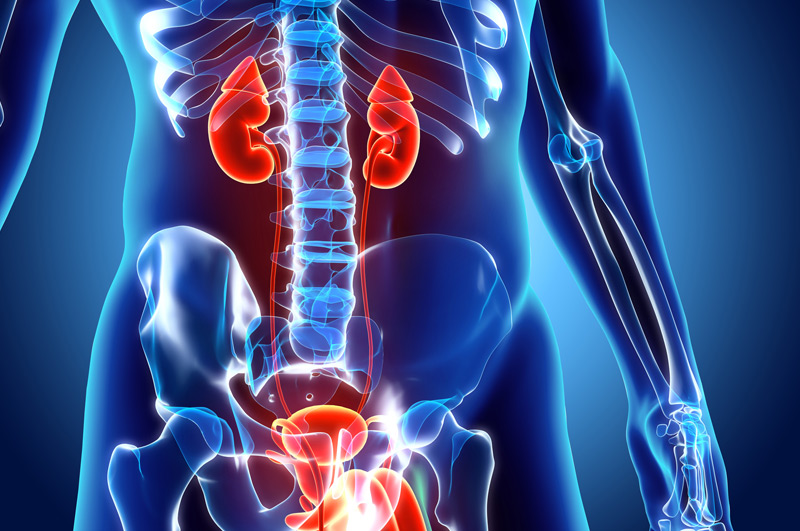Stress urinary incontinence (SUI) happens when sudden pressure on the bladder and urethra causes the sphincter muscles to briefly open, leading to urine leakage. Mild SUI might result in leakage during forceful activities like laughing, coughing, sneezing, or exercising. In more severe cases, leakage can occur from simple actions such as bending over, standing up, or walking.
SUI is more prevalent in women than in men, with one in three women aged 60 years experiencing occasional leakage, compared to one in two women aged 65 years and older.
How a Healthy Urinary System Works
The kidneys filter waste and excess water from the blood to produce urine, managing electrolytes, pH, fluid balance, and blood pressure. Urine travels from the kidneys through the ureters to the bladder, where it is stored until the bladder muscles contract. It exits the body via the urethra, controlled by sphincter muscles that prevent leaks by keeping the urethra closed. When the bladder contracts, these muscles relax, allowing urine to pass. The pelvic floor muscles and tissues provide support for the rectum, bladder, and uterus.


Causes of SUI
SUI occurs when the pelvic floor is weakened, stretched, or damaged due to childbirth, pregnancy, nerve injuries to the lower back, chronic coughing, or pelvic surgery.
Factors that increase the risk of SUI include:
- Being overweight
- Smoking
- Chronic coughing
- Being female
- Pregnancy and childbirth
- Nerve injuries to the lower back
- Pelvic or prostate surgery
How SUI is Diagnosed
Patients should discuss their symptoms with a doctor, detailing:
- Current medications, including over-the-counter drugs, vitamins, and supplements
- Timing and severity of symptoms
- Current symptoms, their impact on daily life, and frequency of incontinence
- Past and current illnesses, injuries, or surgeries
- Pain and other symptoms like bloating or constipation
- Diet and fluid intake
If needed, a primary care physician can refer patients to a urologist or gynecologist for specialized treatment. A physical exam will assess the abdomen, pelvic organs, and rectum. The physician might test the strength of the pelvic and sphincter muscles and observe urine leakage during actions like coughing or straining. Keeping a bladder diary to record daily symptoms, fluid intake, urination frequency, and incontinence incidents is often recommended. A one-hour or 24-hour pad test may also be conducted to evaluate leakage triggers.
Additional tests that may be done to diagnose stress urinary incontinence include:
- Urinalysis
- Bladder scan
- Cystoscopy
- Urodynamic studies

Treatment for SUI
Treatment options for SUI include medical devices to manage the condition, lifestyle changes, and surgery.
Choose UCI Pelvic Health Center
If you’re experiencing stress urinary incontinence (SUI), such as leakage during laughing, sneezing, or physical activity, UCI Pelvic Health Center can help. Our expert team offers comprehensive diagnostics and personalized treatment plans to manage and alleviate SUI symptoms.

